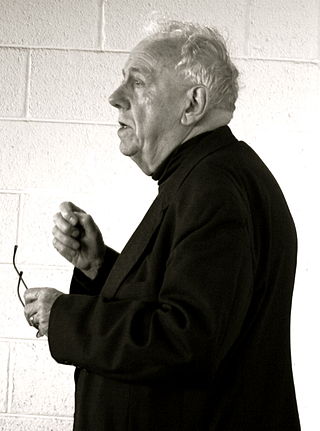Related Research Articles
Egalitarianism, or equalitarianism, is a school of thought within political philosophy that builds on the concept of social equality, prioritizing it for all people. Egalitarian doctrines are generally characterized by the idea that all humans are equal in fundamental worth or moral status. Egalitarianism is the doctrine that all citizens of a state should be accorded exactly equal rights. Egalitarian doctrines have motivated many modern social movements and ideas, including the Enlightenment, feminism, civil rights, and international human rights.

Political philosophy or political theory is the philosophical study of government, addressing questions about the nature, scope, and legitimacy of public agents and institutions and the relationships between them. Its topics include politics, liberty, justice, property, rights, law, and the enforcement of laws by authority: what they are, if they are needed, what makes a government legitimate, what rights and freedoms it should protect, what form it should take, what the law is, and what duties citizens owe to a legitimate government, if any, and when it may be legitimately overthrown, if ever.

Patriotism is the feeling of love, devotion, and sense of attachment to one's country. This attachment can be a combination of many different feelings, language relating to one's own homeland, including ethnic, cultural, political or historical aspects. It encompasses a set of concepts closely related to nationalism, mostly civic nationalism and sometimes cultural nationalism.

A tradition is a belief or behavior passed down within a group or society with symbolic meaning or special significance with origins in the past. A component of cultural expressions and folklore, common examples include holidays or impractical but socially meaningful clothes, but the idea has also been applied to social norms such as greetings. Traditions can persist and evolve for thousands of years—the word tradition itself derives from the Latin tradere literally meaning to transmit, to hand over, to give for safekeeping. While it is commonly assumed that traditions have an ancient history, many traditions have been invented on purpose, whether that be political or cultural, over short periods of time. Various academic disciplines also use the word in a variety of ways.
Communitarianism is a philosophy that emphasizes the connection between the individual and the community. Its overriding philosophy is based upon the belief that a person's social identity and personality are largely molded by community relationships, with a smaller degree of development being placed on individualism. Although the community might be a family, communitarianism usually is understood, in the wider, philosophical sense, as a collection of interactions, among a community of people in a given place, or among a community who share an interest or who share a history. Communitarianism usually opposes extreme individualism and rejects extreme laissez-faire policies that deprioritize the stability of the overall community.
Moral relativism or ethical relativism is used to describe several philosophical positions concerned with the differences in moral judgments across different peoples and cultures. An advocate of such ideas is often referred to as a relativist for short.

Virtue ethics is an approach to ethics that treats the concept of moral virtue as central. Virtue ethics is usually contrasted with two other major approaches in ethics, consequentialism and deontology, which make the goodness of outcomes of an action (consequentialism) and the concept of moral duty (deontology) central. While virtue ethics does not necessarily deny the importance of goodness of states of affairs or moral duties to ethics, it emphasizes moral virtue, and sometimes other concepts, like eudaimonia, to an extent that other ethical dispositions do not.

Aristotelianism is a philosophical tradition inspired by the work of Aristotle, usually characterized by deductive logic and an analytic inductive method in the study of natural philosophy and metaphysics. It covers the treatment of the social sciences under a system of natural law. It answers why-questions by a scheme of four causes, including purpose or teleology, and emphasizes virtue ethics. Aristotle and his school wrote tractates on physics, biology, metaphysics, logic, ethics, aesthetics, poetry, theatre, music, rhetoric, psychology, linguistics, economics, politics, and government. Any school of thought that takes one of Aristotle's distinctive positions as its starting point can be considered "Aristotelian" in the widest sense. This means that different Aristotelian theories may not have much in common as far as their actual content is concerned besides their shared reference to Aristotle.

In Marxist philosophy, cultural hegemony is the dominance of a culturally diverse society by the ruling class who manipulate the culture of that society—the beliefs and explanations, perceptions, values, and mores—so that the worldview of the ruling class becomes the accepted cultural norm. As the universal dominant ideology, the ruling-class worldview misrepresents the social, political, and economic status quo as natural, inevitable, and perpetual social conditions that benefit every social class, rather than as artificial social constructs that benefit only the ruling class.

Alasdair Chalmers MacIntyre is a Scottish-American philosopher who has contributed to moral and political philosophy as well as history of philosophy and theology. MacIntyre's After Virtue (1981) is one of the most important works of Anglophone moral and political philosophy in the 20th century. He is senior research fellow at the Centre for Contemporary Aristotelian Studies in Ethics and Politics (CASEP) at London Metropolitan University, Emeritus Professor of Philosophy at the University of Notre Dame, and permanent senior distinguished research fellow at the Notre Dame Center for Ethics and Culture. During his lengthy academic career, he also taught at Brandeis University, Duke University, Vanderbilt University, and Boston University.
African philosophy is the philosophical discourse produced in Africa or by indigenous Africans. The term Africana philosophy refers to the philosophy of African descendants outside Africa, including African Americans. African philosophers are found in the various academic fields of present philosophy, such as metaphysics, epistemology, moral philosophy, and political philosophy.
The fact–value distinction is a fundamental epistemological distinction described between:
- Statements of fact, based upon reason and physical observation, and which are examined via the empirical method.
- Statements of value, which encompass ethics and aesthetics, and are studied via axiology.

After Virtue: A Study in Moral Theory is a book on moral philosophy by the philosopher Alasdair MacIntyre. MacIntyre provides a bleak view of the state of modern moral discourse, regarding it as failing to be rational, and failing to admit to being irrational. He claims that older forms of moral discourse were in better shape, particularly singling out Aristotle's moral philosophy as an exemplar. After Virtue is among the most important texts in the recent revival of virtue ethics.

Philosophy is the systematized study of general and fundamental questions, such as those concerning existence, reason, knowledge, values, mind, and language. Philosophical methods include questioning, critical discussion, rational argument, and systematic presentation.

Jack Russell Weinstein is an American philosopher specializing in the history of philosophy, political philosophy, Adam Smith, and contemporary liberal theory. He is currently a Chester Fritz Distinguished Professor in the Department of Philosophy and Religion at the University of North Dakota. He is the director of The Institute for Philosophy in Public Life and the host of the public radio show Why? Philosophical discussions about everyday life. He was an influential student activist in the 1980s.

American philosophy is the activity, corpus, and tradition of philosophers affiliated with the United States. The Internet Encyclopedia of Philosophy notes that while it lacks a "core of defining features, American Philosophy can nevertheless be seen as both reflecting and shaping collective American identity over the history of the nation". The philosophy of the Founding Fathers of the United States is largely seen as an extension of the European Enlightenment. A small number of philosophies are known as American in origin, namely pragmatism and transcendentalism, with their most prominent proponents being the philosophers William James and Ralph Waldo Emerson respectively.
The philosophy of human rights attempts to examine the underlying basis of the concept of human rights and critically looks at its content and justification. Several theoretical approaches have been advanced to explain how and why the concept of human rights developed.

Herbert Marcuse was a German-American philosopher, social critic, and political theorist, associated with the Frankfurt School of critical theory. Born in Berlin, Marcuse studied at the Humboldt University of Berlin and then at Freiburg, where he received his PhD. He was a prominent figure in the Frankfurt-based Institute for Social Research – what later became known as the Frankfurt School. He was married to Sophie Wertheim (1924–1951), Inge Neumann (1955–1973), and Erica Sherover (1976–1979). In his written works, he criticized capitalism, modern technology, Soviet Communism, and popular culture, arguing that they represent new forms of social control.

A critical theory is any approach to social philosophy that focuses on society and culture to attempt to reveal, critique, and challenge power structures. With roots in sociology and literary criticism, it argues that social problems stem more from social structures and cultural assumptions than from individuals. It argues that ideology is the principal obstacle to human liberation. Critical theory finds applications in various fields of study, including psychoanalysis, sociology, history, communication theory, philosophy and feminist theory.

Woke is an adjective derived from African-American Vernacular English (AAVE) meaning "alert to racial prejudice and discrimination". Beginning in the 2010s, it came to encompass a broader awareness of social inequalities, such as sexism, and has also been used as shorthand for some ideas of the American Left involving identity politics and social justice, such as white privilege and slavery reparations for African Americans.
References
- ↑ "MacIntyre | Internet Encyclopedia of Philosophy" . Retrieved 2023-06-28.
- ↑ "MacIntyre: Political Philosophy | Internet Encyclopedia of Philosophy" . Retrieved 2023-06-28.